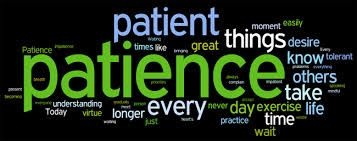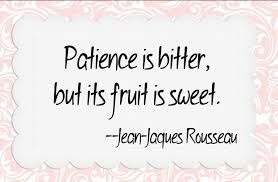Life moves at a frenetic, fast-forward pace, and that makes patience even harder to practice. Yet, the ability to tolerate delay without getting upset is a must-have quality that contributes to our greater sense of well-being.
Patience creates feelings of peace and calm, as opposed to the anger and frustration that often arises with impatience. And finding a way to be at ease mentally while waiting in a doctor’s office or sitting in a traffic jam can also help us stave off a slate of stress-related illnesses, including high blood pressure and autoimmune disease.
We asked M.J. Ryan, author of The Power of Patience, about how to muster patience when it goes against every fiber in your being during a moment when things aren’t going your way or happening fast enough.

What is patience?
A. I’ve come to understand that it's really made up of three aspects. One is persistence. That’s the capacity to keep on going even though you can’t yet see the end result. It's what keeps us moving toward our goal and thus helps us make our dreams come true. Two is acceptance. Accepting that whatever is happening right now is the way it is. The third is a sense of peacefulness or serenity or calmness in the face of what is.
Why is patience important?
To understand that, we need to look at the other side and ask, “What is impatience?” Impatience is on the anger continuum. First you have irritation, then impatience and then anger and, at the far end, rage. So, besides helping us reach goals, what is important about patience is that it keeps our anger turned off.
What do we gain by being patient?
Ultimately, patience allows us to act more mindfully and wisely. You get peace of mind when things are challenging, and you also have better relationships with other people — parents, kids, co-workers, spouse. Lord knows, patience is a quality we most need for high-functioning relationships. It allows us to hang in there and keep going, whether with a person or with a process, or in a business.

What about patience with ourselves?
Boy, do most of us need more of that! The more patience and compassion we have for ourselves, the more we can and will learn. Also, we can only be as patient with others as we are with ourselves.
What are some ways we can train ourselves to become more patient?
What you really want to do is create more space between impulse and action.
Counting to 10 — or even 100! — really works for creating that space. Deep breathing also works for that reason.
In school they are teaching kids this skill by using “red light/green light” so that they can recognize their body signals and feel when they are getting reactive. It works for adults, too. Red light means stop, I’m feeling something here. Then there is yellow, slow down and think about how you want to best respond. Green light, take action.



